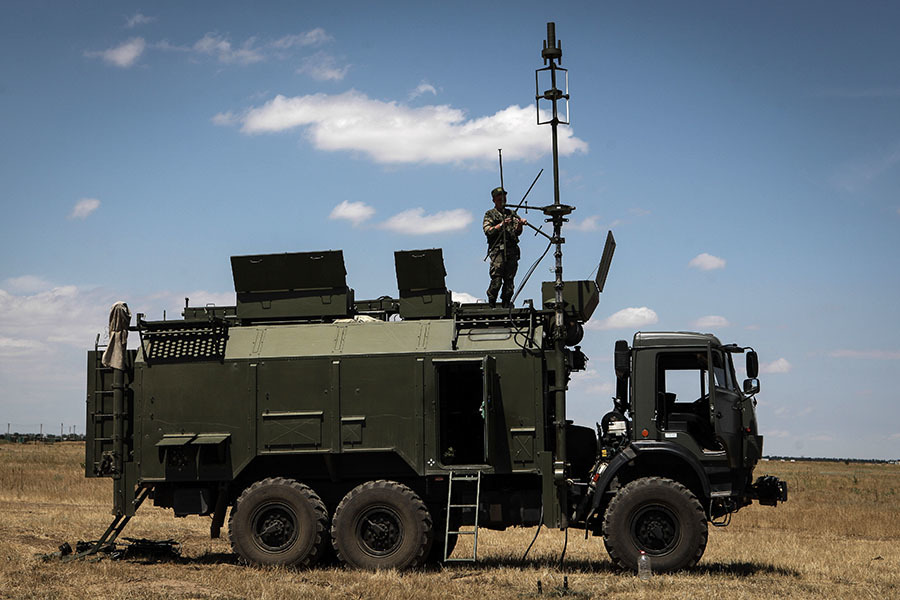A new article has appeared in the EU budget for 2020 - a pilot project to ensure aviation resilience to interference and spoofing (replacing a navigation signal with a false one) in the work of the global satellite navigation system. RT got acquainted with the document of the European Parliament, which contains amendments to the budget of the European Union for the next fiscal year.
“The two-year project will be led by the European Aviation Safety Agency (EASA) in cooperation with European partners. Its goal is to ensure the safety of civilian aviation through the introduction of comprehensive security measures and anti-interference mechanisms, ”the EP points out.
According to the document, the project will determine best practices in relation to the activities of regulatory authorities and organizations working in this field, as well as formulate general recommendations regarding the safety of the global satellite navigation system (GNSS).
It is planned to allocate € 1.5 million for the project. As stated in the justification for the proposed item of expenditure, the need for such measures is explained by the growing risks to the safety of civil aviation, as well as Russia's "large investments" in EW funds.
“For many years, aviation security experts have been warning about the safety risks to civil aviation associated with cyber threats, as well as the creation of simple and complex interference with GNSS. In recent years, the Russian military has been investing heavily in electronic warfare equipment and systems in order to completely drown out satellite and cellular communications, automatic dependent surveillance-broadcasting, FM and GPS signals and others, ”the project’s funding rationale says.
However, as an aviation expert emphasized in conversation with RT, Honored Pilot of the Russian Federation Major General Vladimir Popov, Russian electronic warfare systems can be used exclusively for military purposes and do not pose any danger to European civil aviation.
“Russian electronic warfare systems are not directed against civil aviation. The combat units of the Air Force and the Airborne Forces can be used against the air defense forces of a conditional enemy and against combat aircraft if it performs flights along civilian air routes, ”he noted.
As the expert recalled, EW tools are also used in European countries, and they are located much closer to airports and flight routes. Allegations of the dangers of Russian systems, he stressed, are nothing more than a purely political, politicized act against Russia.
- Serviceman at the Sinitsa electronic warfare jamming station at the district stage of the field training contest among electronic warfare units of the Southern Military District at the Nikolo-Aleksandrovsky training ground in the Stavropol Territory
- RIA News
- © Denis Abramov
"The tendency to blame Russia"
At the same time, as indicated in the amendments to the EU budget for the next year, “some member states, in particular in the Northern region, report an increase in the number of incidents related to security breaches resulting from interference with GNSS.”
So, in November last year, the Norwegian Ministry of Defense stated that the operation of GPS systems during NATO exercises in the country was disrupted due to the alleged actions of the Russian military in the Arctic.
A few days earlier, Finnish Prime Minister Juha Sipilä allowed the possibility of “Russian interference” in the operation of the country's GPS navigation systems. According to him, during the NATO exercises in the north of Finland, "intentional large-scale GPS signal failures" occurred.
According to the German news portal Deutsche Welle, the Finnish part of Lapland and the northern regions of Norway, located near the border with Russia, were affected by the so-called Russian intervention, and the Norwegian regional airline Widerøe confirmed that its pilots encountered violations of the GPS system. However, the airline indicated that in the event of a GPS signal failure, civilian pilots have alternative solutions.
Commenting on the allegations against Moscow, Russian presidential spokesman Dmitry Peskov emphasized that the Kremlin does not know anything about Russia's alleged involvement in GPS problems.
“We do not know anything about the fact that Russia may have something to do with glitches in the GPS system. Here you need to ask the experts or the Ministry of Defense. But you know that now there is a tendency to blame Russia in general for all mortal and other sins. As a rule, these accusations are groundless, ”he noted.
Russia's development of electronic warfare equipment was a response to a threat from NATO forces, Yury Sytnik, a honored pilot of Russia, a member of the Presidential Commission on Aviation Development, recalled in an interview with RT. The main task of these systems is to protect the country.
“Civil aviation uses GPS for navigation, but these same signals can also be used to aim accurate weapons. In order to prevent this from happening, there are electrical interference. However, statements that Russian electronic warfare systems can affect civil aviation are an informational stuff, ”he concluded.

